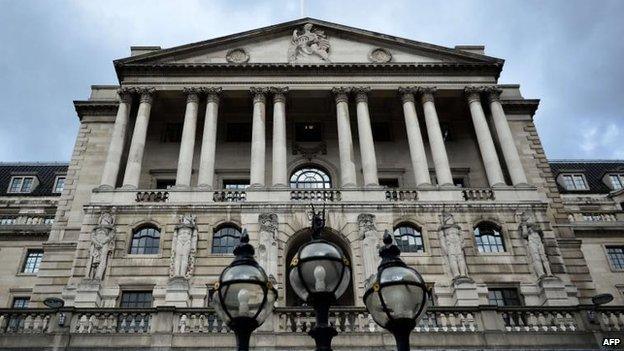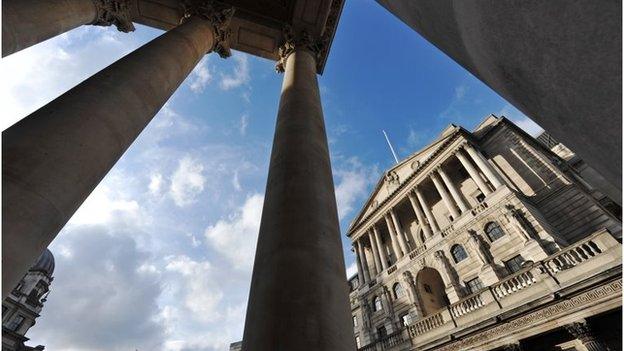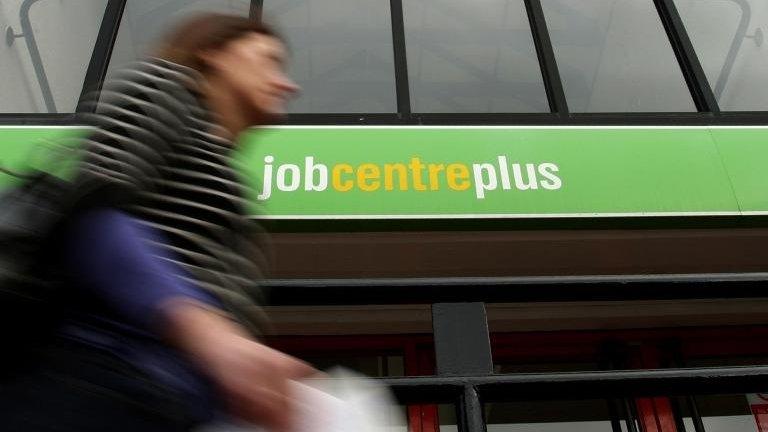UK interest rates mark six years at record low of 0.5%
- Published

UK interest rates have been kept unchanged again by the Bank of England, meaning they have now been at their record low of 0.5% for six years.
Rates were first cut to 0.5% in March 2009 as the Bank sought to lift economic growth amid the credit crunch.
Recent growth in the economy has prompted speculation that rates will start to rise again in the near future.
However, continuing low inflation, now at 0.3%, gives policymakers little reason to raise the cost of borrowing.
The Bank also kept the size of its quantitative easing (QE) programme unchanged at £375bn.
Price moves
Inflation is expected to remain low, and could even turn negative briefly, thanks largely to a near-halving in the price of oil since last summer.
Bank of England governor Mark Carney has even talked about lowering interest rates further to a new record low, should prices remain near flat for longer than expected.
However, Mr Carney has said prices are likely to rebound around the turn of the year.
Most developed economies are used to prices rising. The fear is that if prices do start to fall, consumers will put off buying goods in the hope of further price falls.
With the economy around 70% dependent on consumer spending, any slow down could have a harsh impact on overall economic growth.

Cheaper fuel prices have helped to cut the rate of inflation
Rate timing
Martin Beck, senior economic adviser to the EY Item Club, said the next rate rise could be almost a year away.
"While the risks of an earlier rate rise have probably increased lately, we still think it most likely that the Bank will wait until February 2016, by which time inflation will be back above 1% and heading towards the 2% target."
Fund manager Investec, however, thinks there is a case for rates to rise in November this year.
David Kern, chief economist at the British Chambers of Commerce (BCC) called for the Bank to reveal its plans: "The strengthening pound against the euro is already posing challenges for many UK exporters and higher interest rates would only make matters worse.
"Given this background, business confidence will be strengthened if the Monetary Policy Committee (MPC) clearly states that interest rates are likely to stay on hold until at least early 2016."
Boon?
Minutes of last month's MPC meeting showed members voted unanimously for no change to rates.
However, there was a debate revealing a three-way split between the nine members as to their future direction, with two arguing there could be a case to raise rates later this year, while one member said the next change in rates was "likely to be a loosening as a tightening".
Low interest rates are a boon to borrowers and have kept mortgage payments at record lows.
However, savers and pensioners have suffered.
Financial services firm Hargreaves Lansdown estimates savers have collectively lost £130bn during the six years of record low rates, compared with more normal rates - £5,000 for every household.
- Published5 March 2015

- Published18 February 2015

- Published17 February 2015

- Published12 February 2015
